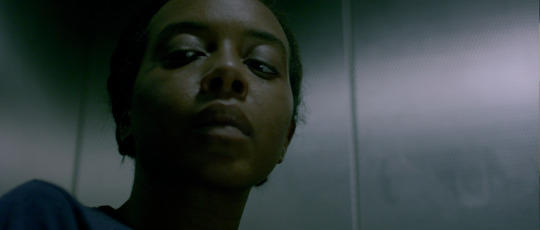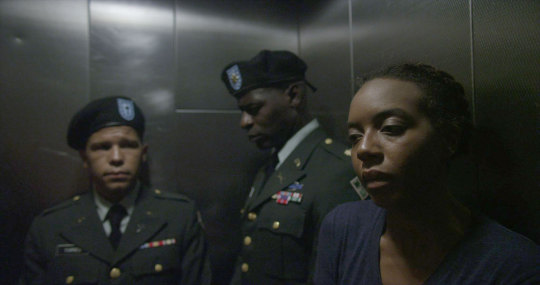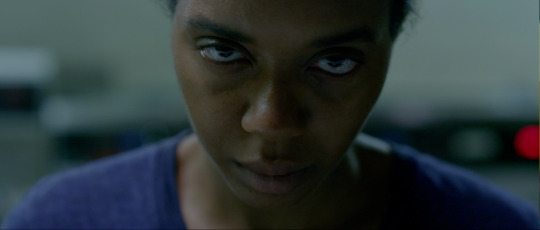Fellows at 30: Moon Molson
“What can NYFA do to help? Keep supporting diverse filmmakers through programs such as the Artists’ Fellowships. They’ve helped me maintain a career as a short filmmaker, and very soon that career will lead to one as a feature filmmaker.”
As part of our 30th Anniversary series NYFA interviewed two-time Fellow in Video/Film, Moon Molson. Molson was named one of Filmmaker Magazine’s “25 New Faces of Independent Cinema” in Summer 2007 and has received grants from The Jerome Foundation, New York State Council on the Arts (NYSCA) and the Sundance Institute. Most recently, he was named a 2015 Guggenheim Fellow in Film/Video and attended the 2015 Warner Brothers Television Directors’ Workshop.
Moon was kind enough to talk to NYFA about The Oscars, his career, binge watching and more! For more information on NYFA’s 30th Anniversary click here and to learn more about Moon click here.

NYFA: How has the film industry changed since your first Fellowship in 2007?
MM: The economy changed drastically around that time, and by necessity, so did the film industry. Money disappeared. Jobs disappeared. And in the midst of this recession, Hollywood became very risk averse. Since “scared money” won’t bank on aesthetically risky cinema, we ended up with a decade of "sure-bet cinema,” both mainstream and independent.
In fact, in 2008, my manager and agent were totally convinced that they could get the feature film debut I was developing at the Sundance labs "funded yesterday.” But by the end of 2009, after a year of shopping the script around Hollywood, they threw up their hands and were like: "We just can’t get an urban drama financed in this tough economic climate.” Yeah, things changed pretty quickly around 2007, and not in my favor.
NYFA: You often make short films, what draws you to this kind of filmmaking?
MM: A lack of funds to make feature films. Just kidding. Okay, half-kidding. It’s a combination of things. One is that I decided that I never want to let an entire half-decade pass without making a film of some kind. I have friends who are brilliant filmmakers who have spent years focusing hard on raising funds for their debut or sophomore feature efforts, only to have their financing fall apart, then look back and realize that they let nearly a decade pass without making anything at all.
As a teacher, I’m always trying to get my hands on brilliant shorts, and at some point I noticed a trend that if more than five years had passed since a filmmaker made his or her latest film, they most likely didn’t make another one—short or feature. I guess that if you’ve actually made a film, then don’t make another one of some kind by that 5 year mark, you lose your resources…your collaborators…your skills…your confidence. Not to mention, people simply forget you’re out there. Making short films is a good way to stay current and hone your skills in those sometimes long stretches of time it takes to raise funds for feature work.
Second is the fact that some of the stories I want to tell are simply more suited to the short form. I look at short films like the prose world looks at short stories, as a distinct art form, requiring a distinct skill and talent set, that should be respected and admired. Maybe one day the American film industry will see short films as more than just calling cards for prospective feature filmmaking careers. For instance, I love the fact that a brilliant filmmaker such as Lucrecia Martel goes back and forth between making feature films and short films with seeming little concern for the lack of commercial viability of the shorts.

NYFA: What films do you currently find inspiring? Are there specific films you always recommend to your students or other young filmmakers?
MM: I don’t currently find any films inspiring, or at least “current films” inspiring. I’m more inspired by American television these days, which is in the midst of a true Renaissance. In fact, binge watching cable episodics can sometimes get in the way of me doing my own creative work.
NYFA: Did you watch this year’s Oscars? Do you have any thoughts on the injustices practiced in Hollywood? Do you foresee any changes to this industry in the future? If so, what changes? As staunch supporters of the arts, what role can NYFA serve to remedy this problem?
MM: No, I boycotted the Oscars this year (and last year) by not watching on television or online. The Oscars themselves are not so much the issue as they are endemic of a larger problem of a lack of diversity at the development and hiring phases of Hollywood filmmaking. I do see some changes being made in that many studios have been creating diversity programs to help locate and foster underrepresented talent. But if these programs create real change in the industry, or if they are merely lip-service being paid to the frustration expressed by women filmmakers and filmmakers of color, we have yet to see. If anything, I hope that the new studies coming out of institutions like UCLA, claiming that Hollywood is losing millions by not being inclusive, really put the fire under the asses of the studios to hire more women and people of color—in front of and behind the camera.
What can NYFA do to help? Keep supporting diverse filmmakers through programs such as the Artists’ Fellowships. They’ve helped me maintain a career as a short filmmaker, and very soon that career will lead to one as a feature filmmaker.

Follow the work of past and present NYFA Fellows on Twitter at #NYFAFellows30 and find out more about the activities planned for our 30th Anniversary on our website. NYFA’s Artists’ Fellowship Program awards $7,000 grants to individual artists in New York State.
– Madeline Scholl, Program Associate, Alumni Relations and 30th Anniversary
Images, from top: Moon Molson, All images are stills from the film, The Bravest, The Boldest, shot by Kartik Vijay, 2014.





